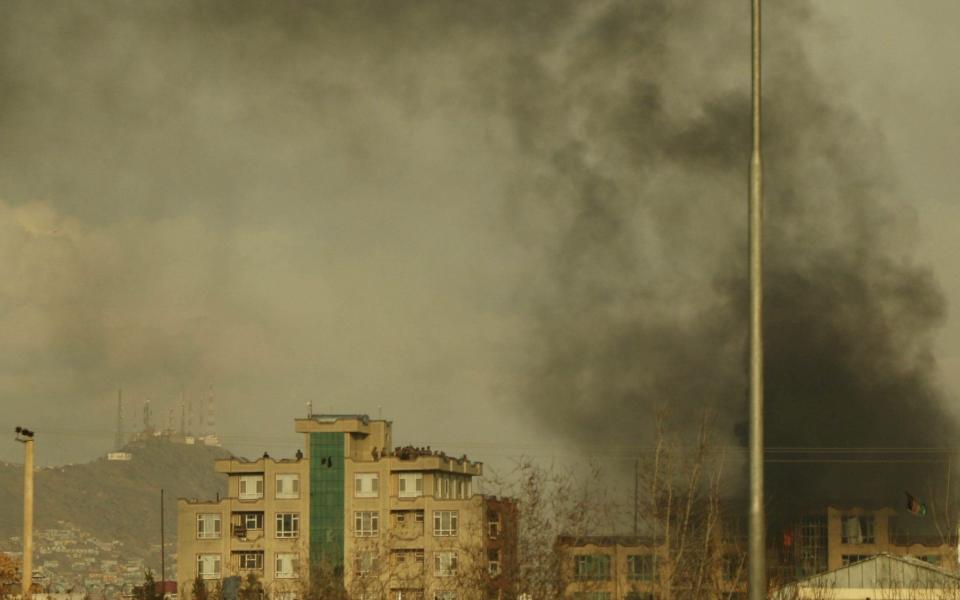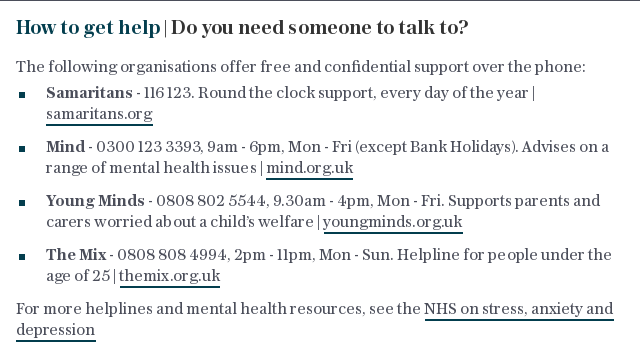Former Royal Marine shot himself after fearing colleagues would discover his PTSD, inquest hears

A former Royal Marine Commando shot himself in the head after fearing he would lose his job if colleagues found out he was suffering from post traumatic stress, an inquest heard today.
Stuart McBrearty was working for a private security firm at the Canadian Embassy in Afghanistan at the time of his death, despite being diagnosed with depression.
The 39 year old - 'a great man who had his demons' - was plagued with dreams about combat and was worried he would be sacked if his PTSD was discovered, a coroner was told.
Just three months before he died he sent a text to his wife telling her: 'Last night I put my pistol to my head three times and unloaded it three times. I must find out what stopped me pulling the trigger.'
His body was discovered after a colleague called to his room in the compound in Kabul, where he heard a phone ringing, and upon looking in the shower he discovered Mr McBrearty with gunshot wounds and a nine mm pistol by his side.
An inquest held at Winchester Crown Court, Hants, heard today that Mr McBrearty was believed to have developed PTSD following tours of Iraq and Afghanistan but feared he may lose his job if his colleagues found out.
Mr McBrearty was found to be nearly three times the drink drive limit at the time of his death and had traces of diazepam in his blood.
His widow, Sophie Hughes today called for more rigorous searches of rooms and routine drug and alcohol tests for private companies operating in the theatre of war.
Miss Hughes, who married Mr McBrearty in 2010, told the inquest: "He was one of the most incredible people I have ever met. He was goofy, he was funny, always professional, but troubled...
"The night before he died I spoke to him and he told me he had been drinking."
The court heard, In July 2019, just months before he died he sent a Whatsapp message to his wife which read: "Last night I put my pistol to my head three times and unloaded it three times...
"I must find out what kept me from pulling the trigger... When I woke up this morning I just felt numb."

Dr David Oyewole, a psychiatrist at the private Nightingale Hospital in London, saw Mr McBrearty in August 2019, just two months before his death and said: "He said he felt more able to cope when on duty in the Middle East.
"He told me he had dreams about combat that had happened and also sometimes about combat that had not yet happened."
Mr McBrearty, from Aldershot, Hants, also stressed to the doctor that he feared he may 'lose his job' if it was discovered he had PTSD.
Mr Mcbrearty, who died on October 17 2019, had a 'history of depression' according to his GP Claire Brookes and in 2003 he took an overdose of paracetamol.
In 2004 the veteran soldier, while serving in the Royal Marines, was ambushed during a tour of Iraq. He also suffered another ambush in 2007 this time while in Afghanistan.
In 2008 Mr McBrearty, who served in 40 commando for most of his career, was hit with shrapnel in his backside after a colleague accidentally detonated a mine strike while they were in Helmand province.
In 2013, Mr McBrearty decided to leave the military and took up 'close protection work' for Olive Group, which is part of the Constellis security group, at the Canadian Embassy in Kabul.
Mr Padfield, who is operations manager in Afghanistan for Constellis said the company did carry out routine drug and alcohol tests.
He said: "There was an empty bottle of vodka in Stuart's room - I don't know where that came from.
"Of course I would want to know if my colleagues were on drugs or if they had been drinking. You don't expect people to be coming in and drinking in Afghanistan."
When asked if people working for Olive Group are afraid to use helpline and trauma support services, he said: "I don't know if people are worried about losing their job.
"I think the issue is more about the way people look at themselves at the way they are going to be perceived by others.
"These people are forty or fifty years old, we can't search them for drugs and alcohol all the time. We can't treat them like children."
The Olive Group say they were 'unaware' of Mr McBrearty medical condition and his overdose and diagnosis of depression.
A colleague and friend who was working with Mr McBrearty in Kabul at the time of his death, Steven Ronald, said: "I knew him from work but we became good friends. Stu was the best. The best guy.
"He told me that he felt trapped and he had nowhere to move. He was very professional, but he kept a lot to himself.
"A friend of his died a year before in an attack at the embassy. It affected Stu in a big way. At the time this friend was working with Stu and myself. I think Stu had a sense of guilt for his death."
Dr Adnan Al-Badri, who carried out the post mortem on Mr McBrearty, found he had an entry wound on the right hand side of his temple and another exit wound on the left hand side.
He concluded the cause of death as a gunshot wound to the head.
Last year, according to official figures, 58 former soldiers took their own lives, but many veterans charities believe the figure could be much higher.
Area coroner Jason Pegg concluded: "This was someone who wanted to conceal the way he was feeling from his GP he wanted to conceal what was going on for fear of losing his new career in the close protection world...
"That zero tolerance policy [for drugs and alcohol) appears not to have been strictly enforced and appears to have been based on trust. Stuart was someone who was required to carry a weapon, namely a nine mm pistol.
"His PTSD was a result of his service in hostile environments. When he put the pistol to his head he knew what the outcome would be and therefore the appropriate conclusion is one of suicide.
"He was clearly a great man who had his demons, and those demons contributed to his death on October 17.
"When he put the pistol to his head he knew what the outcome would be and therefore the appropriate conclusion is one of suicide."

